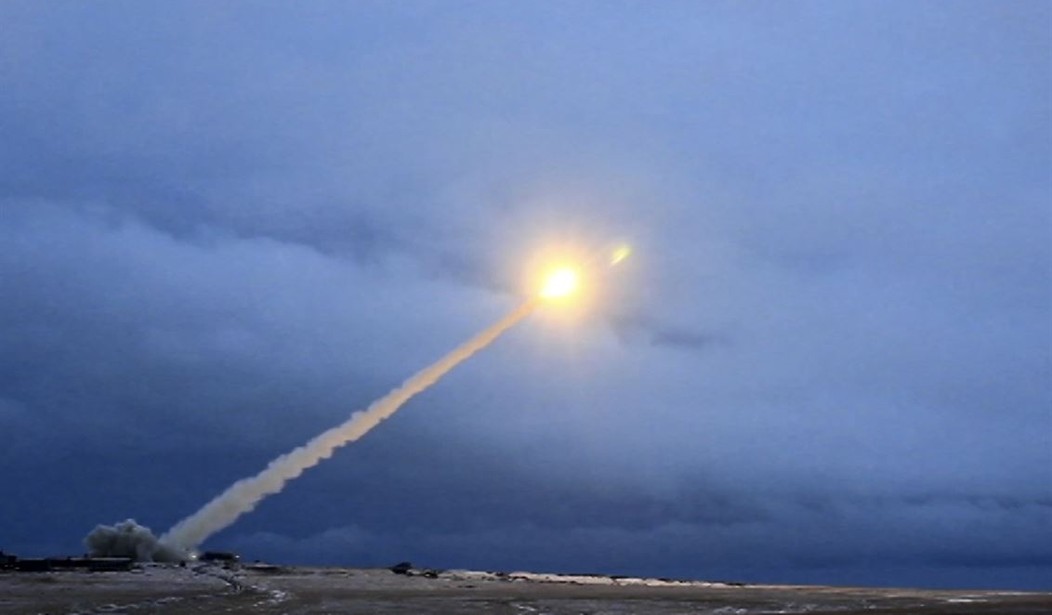That "pause" that we talked about yesterday didn't last very long. Israel launched its anticipated retaliatory strike on Iran this morning, firing missiles into the city of Isfahan in the central part of the country. The location was probably significant because that is the site of Iran's Natanz nuclear research facility as well as one of its larger military air bases. This appeared to be more of a "message" attack than a broader escalation of the war because it was significantly smaller than Iran's attack on Saturday. Iran tried to play down the incident, with their state news network describing it as a "loud noise" in the region. The Biden administration quickly distanced itself from the response, saying that the White House "didn't endorse" Israel's response.
Israel launched its expected retaliatory strike against Iran on Friday morning, according to multiple reports.
Israeli missiles hit at least one site in Iran, ABC News reported, citing US officials, and Iranian state media alerted citizens to explosions heard in the central part of the Islamic republic.
The attack comes after Iran rained down more than 300 drones and missiles toward the Jewish nation last Saturday — though nearly all were intercepted by Israel and its allies.
Israeli officials notified the US on Thursday that it had planned to strike Iran within 24 to 48 hours, according to Bloomberg News.
Marco Rubio decided to have a bit of fun with the announcement, noting that the attack came on Khamenei's birthday.
Hearing @khamenei_ir is having a blast today on his birthday https://t.co/z3NOan5vS3
— Marco Rubio (@marcorubio) April 19, 2024
The reason I described this event as more of a "message" is that Israel clearly wanted to make a statement. Iran previously warned that even the "tiniest" attack by Israel would result in a savage response. This morning's attack was Bibi Netanyahu's way of telling the Mullahs that they do not dictate how or when Israel will respond to attacks on its people and territory.
At the same time, the response was actually proportional in a way. Iran launched a massive number of drones and missiles at Israel, but almost none of them reached their targets. Israel's attack got through without any apparent issues. Iran is coming away from this exchange looking like the weaker and more impotent opponent. If they decide to attack Israel again, they have been shown that they are vulnerable in the heart of their own country.
Perhaps the most disappointing aspect of today's events was the response from the Biden administration. By saying that the White House "didn't endorse" the attack, Biden is obviously trying to keep his hands clean for political reasons. Tony Blinken was trotted out this morning to assure everyone that America was "not involved" in the attack. A strong ally would have immediately put out a statement saying that Israel had been attacked and we fully support their right to defend themselves as they see fit. Instead, the Biden administration is attempting to look like a neutral third party to avoid angering the pro-Hamas wing of the Democratic base.
Given the limited scope of the attack and Iran's muted response, today's actions may have been a calculated gambit on Israel's part. Rather than escalating the situation into an all-out war, we could be seeing a return to the status quo. General Spider Marks was on CNN this morning explaining how this exchange might signal a return to the proxy war that preceded last Saturday's attacks by Iran. That's not an ideal situation, of course, but a full-blown, direct war between Israel and Iran could not only produce unexpected consequences but could conceivably draw other Arab states in the region into the fray. Israel has demonstrated that it can handle Iran's proxies with the support of its allies, but nobody wants to see this fight expand to global levels.








Join the conversation as a VIP Member